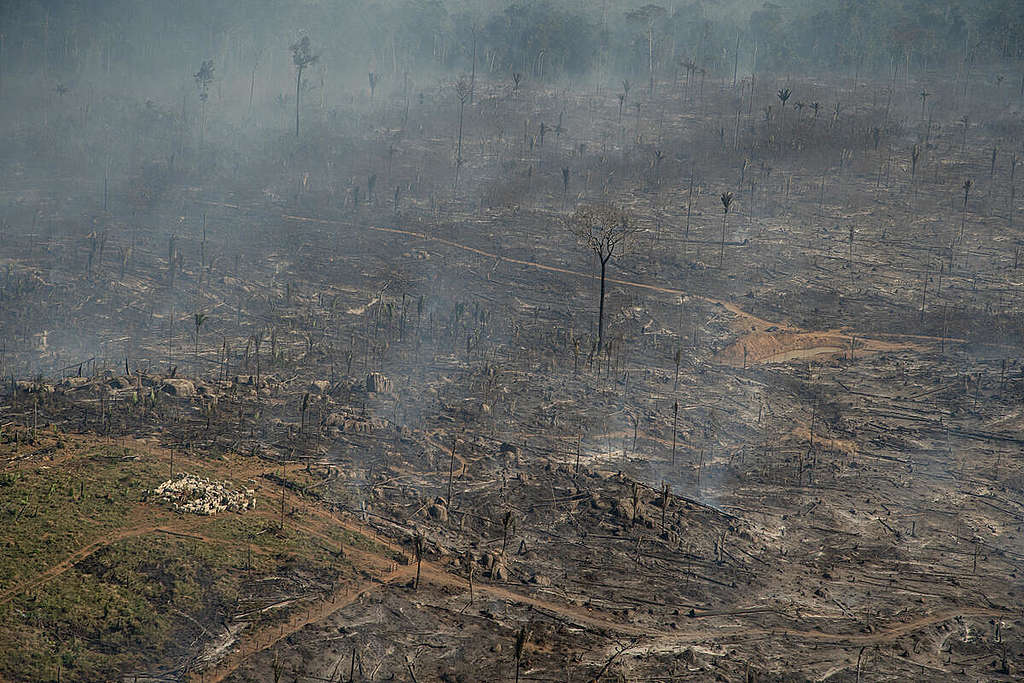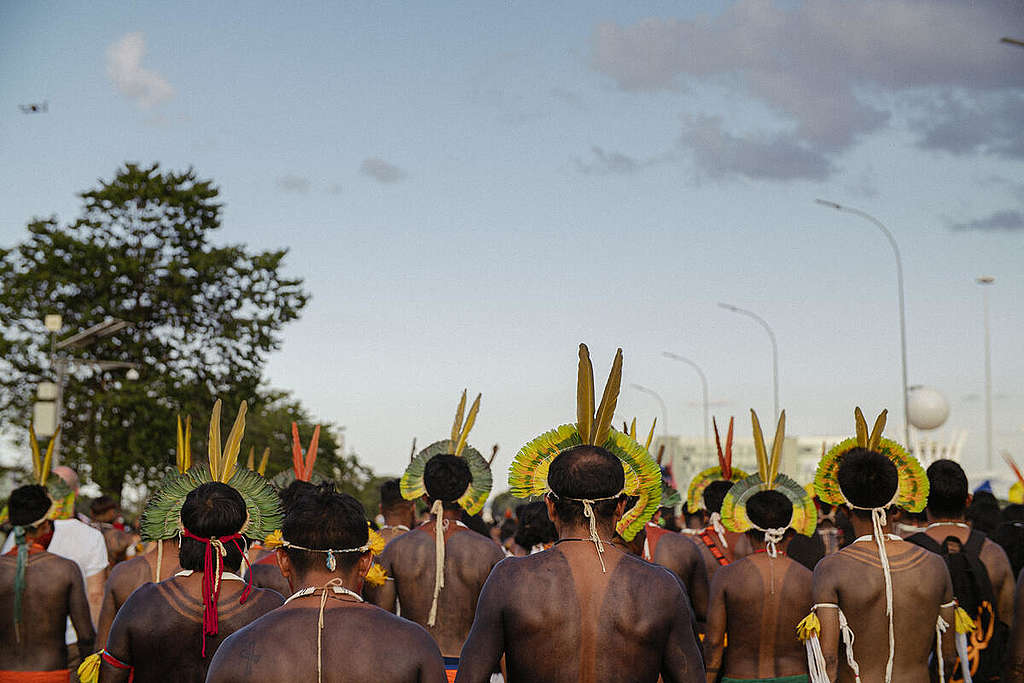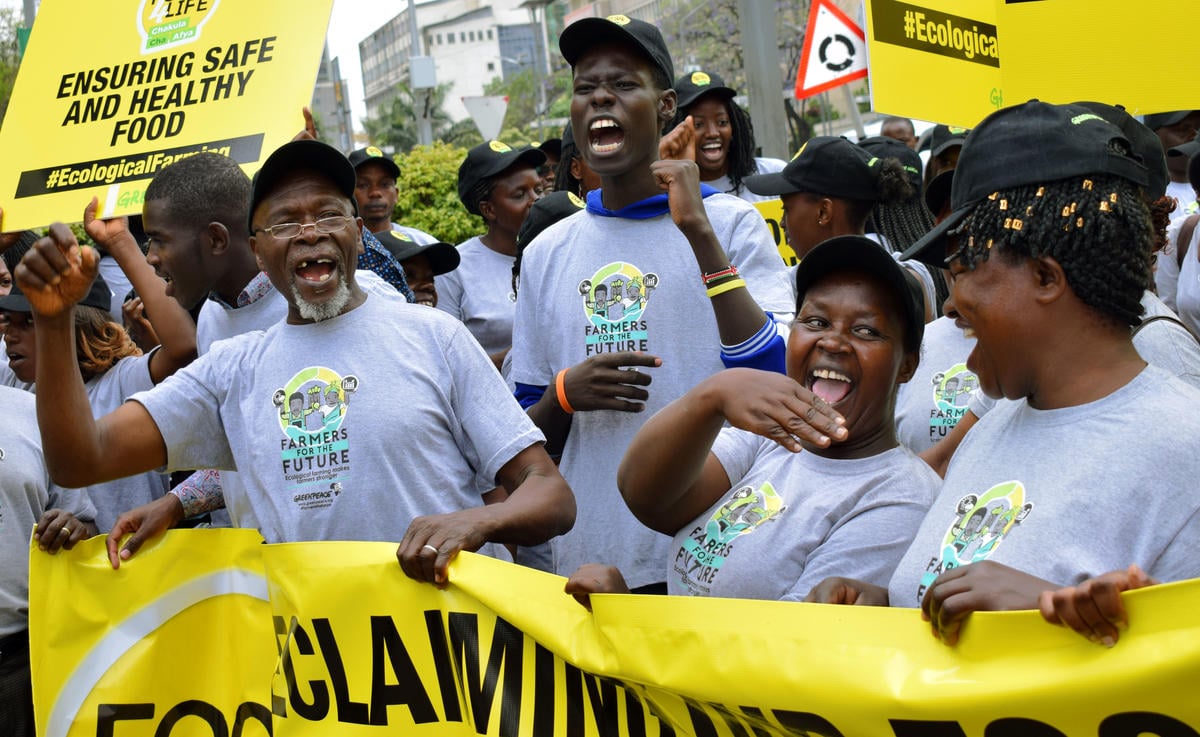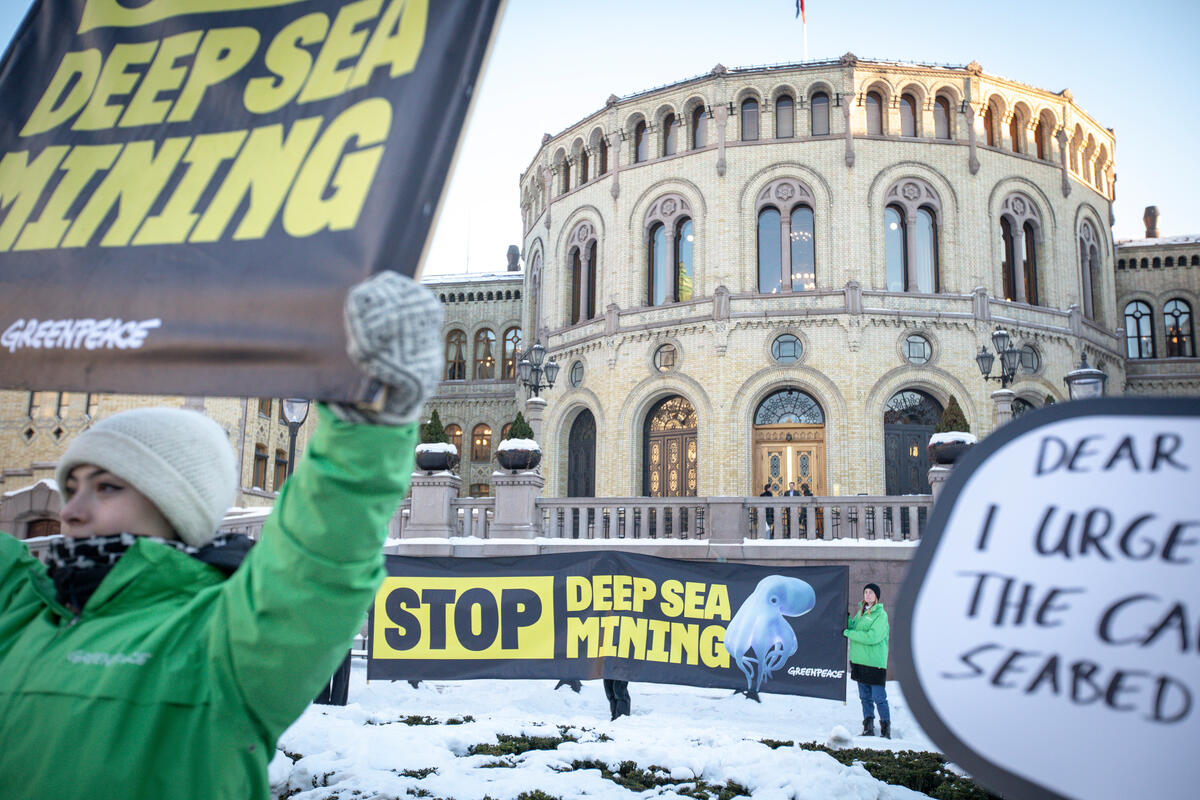From unimaginable habitat loss to heartbreaking species extinctions, it shouldn’t be a surprise to any of us that our biodiversity – the variety of life in the world – continues to suffer from human greed, exploitation, encroachment, and neglect – putting short-term profit above all else. All life on this planet interacts and interconnects. All life relies on the biodiversity that surrounds it to thrive and survive.

A critical juncture in our global crisis biodiversity loss, The Convention on Biological Diversity (CBD) COP15 is planned to be held later this year in Kunming, China. This meeting will be absolutely critical to determine how we as a global community impact biodiversity over the next ten years.
To succeed, the CBD COP15 negotiations must ensure greater protections for Indigenous Peoples and local communities and their civil rights, particularly land rights. Greenpeace also supports the call for a 30×30 (“thirty-by-thirty”) policy to protect at least 30% of the world’s land and 30% of the oceans by 2030, if it is in cooperation with Indigenous Peoples and local communities. Their knowledge, practices and stewardship make them the most qualified guardians of nature.

For this year’s World Biodiversity Day (22 May), here are 10 quick facts to keep you up-to-date on what’s happening with biodiversity.
- As of 2021, just 9% of the world’s forests remain intact.
- The Amazon has already lost 17 percent of its forest cover and an additional 17 percent of its rainforests have been degraded
- Only 3% of the world’s oceans are free from human pressures
- The Deni, a community of Indigenous Peoples who live in what is known as modern day Brazil, took control of their local fishing areas in 2011. In eleven years, their sustainable management increased the local fish stock by 425%.
- Under Indigenous stewardship, West Papua in modern day Indonesia has retained most of its natural forest cover and boasts a higher level of plant diversity than any other island on Earth.
- Commercial fisheries kill tens of millions of sharks every single year – disrupting whole ecosystems and threatening the livelihoods of coastal communities who depend on healthy oceans and sustainable fisheries.
- The African Union (a coalition of 55 CBD member states), supported by many other developing countries and China, launched a proposal for a global biodiversity fund to finance protections in developing economies, with at least US$100 billion annually, rising to US$700 billion annually by 2030 and beyond. The Kunming Fund, established by China with an initial pledge of $230 million USD, made modest efforts to finance biodiversity protection. Traditional donor countries in Europe and North America have disappointingly been tight-lipped so far.
- False solutions are a big risk to biodiversity protection, including offsets, double-counting climate funds with biodiversity funds, and any conservation efforts that fail to cooperate with Indigenous Peoples and local communities. Any biodiversity protection targets, such as the 30×30 target, must hold to Indigenous Peoples’ and local communities’ rights and central roles.
- Protecting the oceans presents a unique challenge. Greenpeace’s “30×30 Blueprint for Ocean Protection” mapped the ocean (which covers almost half the globe) into 25,000 squares, each 100×100 km, and then analyzed the distribution of 458 different conservation features, including wildlife, habitats and key oceanographic features. This enables researchers to generate hundreds of scenarios for what a planet-wide network of ocean sanctuaries, free from harmful human activity, could look like.
- The CBD has 195 parties: the Vatican is not a signatory, while the US has signed but not ratified the Convention. The US does, however, usually send a delegation to the negotiations.
August Rick is International Communications Officer at Greenpeace East Asia.



